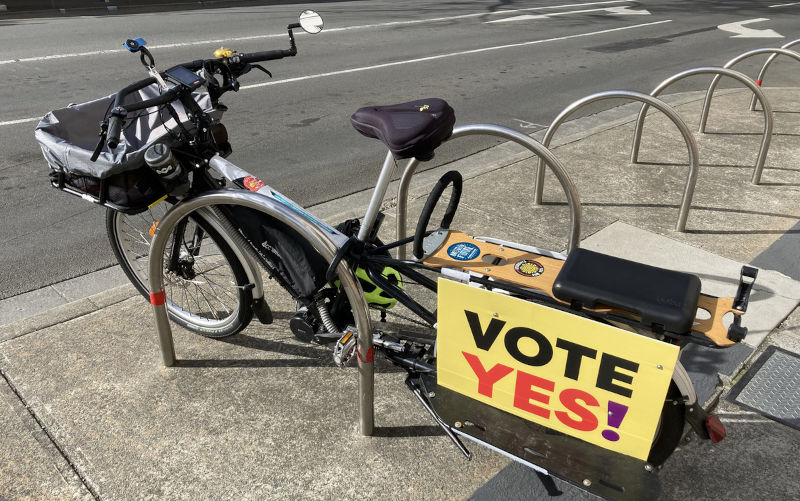Myths of the Referendum
October 15, 2024
One year on from the defeat of the ‘Indigenous Voice’ referendum of 14 October 2023, some myths have arisen about the process and the outcome. These deserve further discussion.
I supported the referendum unequivocally and would still do so today. Like many supporters of a ‘Yes’ vote, I had criticisms and doubts about the outcome, but I was not going to mention those in the context of the hysteria and misinformation being generated by the naysayers. Those who were literally screaming about the creation of two classes of Australian were so ignorant of our history that their inaccuracies were an unworthy distraction.
Nevertheless by early October, it was clear that the referendum was unlikely to succeed. Anecdotal evidence from the team of shearers who attended to my small flock suggested that the fear campaign had taken root in the bush. They reported that farmers were telling them they thought their land was threatened by Indigenous interests. While this might seem like a marginal issue when the majority of voters live in urban areas, it does show how readily the ‘No’ case could be translated into bizarre beliefs.
1. The referendum was NOT a plebiscite about the Indigenous Voice. It was a vote on whether to alter the Constitution. Further it was a vote on a specific proposal and NOT a veto on any and every proposal, let alone a genuine test of the mood of the people.
2. Despite the Prime Minister’s tough talking and his management of the wording of the question and the conduct of the campaign, there is no sign that he accepts responsibility for the wasted opportunity. There was no offer to resign because his leadership on the issue was rejected. He received a warm welcome at the Garma Festival but this was probably due more to the generosity of the Indigenous people than to any great efforts on his part.
3. All three aspects of the Uluru Statement from the heart are now considered too difficult for the support of the federal government. Yet state jurisdictions have proceeded with implementation of a Voice (South Australia) and Treaty-making (Victoria).
4. There is no reason to delay legislating for a Voice at federal level, except for political timidity. While Coalition obfuscation might have been a factor in the loss of the referendum, it could be put to the test by submitting a bill to parliament.
5. The result does NOT show that Australians do not care about Indigenous people. The challenge remains for people of goodwill – and there are some even in the Dutton led Coalition - to campaign for Reconciliation.
6. Assimilation IS now a matter of great concern. Indigenous leaders have warned of the danger of politicians who are ‘ fair weather friends’ and make grand speeches but then forget their promises when convenient.
7. Some observers suggest that the result was predictable because the question lacked bipartisan support. While every referendum adds to our understanding of the general process, leading scholar of polls Murray Goot has called the idea into question, especially as applied to the reasons for the defeat of the 2023 referendum.
8. The result does not mean that Coalition emphasis on ‘practical reconciliation’ is practical at all. Reports on ‘ closing the gap’ in social indicators between Indigenous and other Australians suggest that such measures are not working and perhaps never will. Progress has been slow and in some areas negative. Five of the 19 targets have been slow and four areas have worsened, including suicide and incarceration rates, children in out-of-home care and developmental standards when starting school.
I argued last year that a ‘Yes’ vote would benefit not just Indigenous peoples, but all Australians. A Voice would help Indigenous Australians to feel they are appreciated by all of us and help them to share their wisdom and culture with us all. Further, a ‘Yes’ vote would have made everyone more aware of the Constitution and stimulated greater interest in it. Our political culture would have improved if we had taken the opportunity to act in a proud non-partisan way. We ought not be fair weather friends of Indigenous peoples, of the Constitution or of a better politics, but should keep working on these issues.


